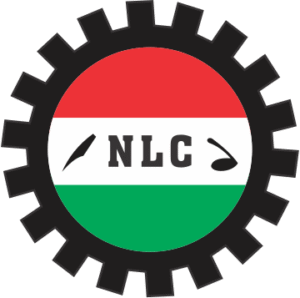
Osuoza, flanked by Aniagwu, Ahon and other Exco members, brief the press at the end of the meeting
* Approves Construction Of multiple roads
By Jon Egie
Civil servants in Delta State will soon smile to the banks as the Delta State Government has commenced moves to implement the new minimum wage signed into law by President Bola Tinubu.
[the_ad id=”16914″]
The State Governor, Rt Hon Sheriff Oborevwori at the end of Exco meeting yesterday, directed the Secretary to the State Government (SSG), Dr. Kingsley Emu, and the Commissioner for Finance, Chief Fidelis Tilije, to hold talks with the State Council of the Nigeria Labour Congress (NLC), on the implementation of the N70,000 new minimum wage in the state.
The State Commissioner for Information, Dr. Ifeanyi Osuoza, announced this on Wednesday while briefing newsmen after the State Executive Council (EXCO) meeting presided over by the Governor, Rt. Hon. Sheriff Oborevwori at Government House, Asaba.
Dr. Osuoza said the talks between the government and the organized labour would revolve round the consequential adjustments of the new wage.
The Commissioner also said the State Exco also approved the payment of N3.55bn as counterpart funding for the 2024 Universal Basic Education Programme in the state. He said Exco also approved the appointment of Obi Sunday Ubaka Ogboli as Obi of Issele-Mkpitime in Aniocha North Local Government Area of the state.
[the_ad id=”16918″]
The Information Commissioner disclosed that Exco also approved the reconstruction of Ohoror-Bomadi Road; construction of Olomoro-Igbide Road; construction of Emevor-Ivrogbo-Orogun Road Phase 2; Otekpo Road in Ellu and Idumu-Etiti Street with a spur to market Road, Owere-Olubo.
Others include; the rehabilitation and asphalt overlay of failed sections of NNPC Housing Complex Road, Uvwie Local Government Area; Ekeye-Ovedhe close in Okumagba Layout, Warri; General Hospital Road, Oghara in Ethiope West Local Government Area; Old Sapele/ Warri Road from Amukpe Junction to Ikwuehu, with a spur to Ayemidejor Close in Sapele Local Government Area, and Orerokpe-Okulohor-Oviri Road; and Osubi- Okuokoko road and environs, Phase 1.
Also approved are internal roads and drains in Kurutie, Obitobon-Elolo-Ajaokurogbo-Orubu Road Phase 2, Ogidigben; Kurutie internal roads Phase 2; Old Sapele Road to Amukpe to Ikwewu Community with a spur to Ayemidejor Close in Amukpe, Okeye and Iyke Oputa Street, Aboh in Ndokwa East Local Government Area and Issele-Azagba-Otulu road in Aniocha North and South Local Government Areas.
The Commissioner also said Governor Oborevwori decried the prevalent hardship in the country and directed the Commissioner for Agriculture and the Chief Job Creation Officer to bring up programmes that would cushion the effect of the hardship, especially on youths across the state.
[the_ad id=”16917″]
Speaking to journalists at the briefing, the State Commissioner for Works (Rural and Riverine Roads), Mr. Charles Aniagwu said the approvals buttress Governor Oborevwori’s Meaningful Development plans across the state with 23 out of 25 local government areas directly impacted by the Exco new approvals.
Speaking on the approval for the reclamation of gully erosion site along Okpanam-Ibusa bypass Road, the State Commissioner for Works (Highways and Urban Roads), Comrade Reuben Izeze, said the approval would enable the state government reclaim areas affected by gully erosion for the sustainability of the new road.
Also speaking during the post-Exco briefing, the Commissioner for Health, Dr. Joseph Onojaeme, said the state Exco approved the purchase of two Computerised Tomography (CT) scanning machines, one each for the Central Hospital, Warri, and the Delta State University Teaching Hospital (DELSUTH), Oghara.
Dr. Onojaeme disclosed that the approval for the purchase of the medical equipment was very significant as it is used for diagnosing diseases and internal injuries in the health care delivery sector, adding that the CT scan is for the benefits of all Deltans.
According to him, the Ministry of Health had got approval to renovate over 150 primary health centres (PHCs) across the state because of its importance in the health care delivery system, saying “if Primary Health care facilities are properly taken care of, more then 80 per cent of health challenges would have been addressed.”







